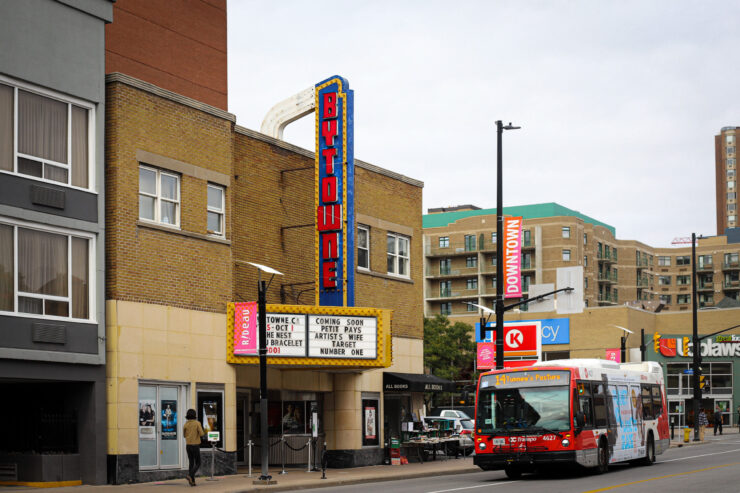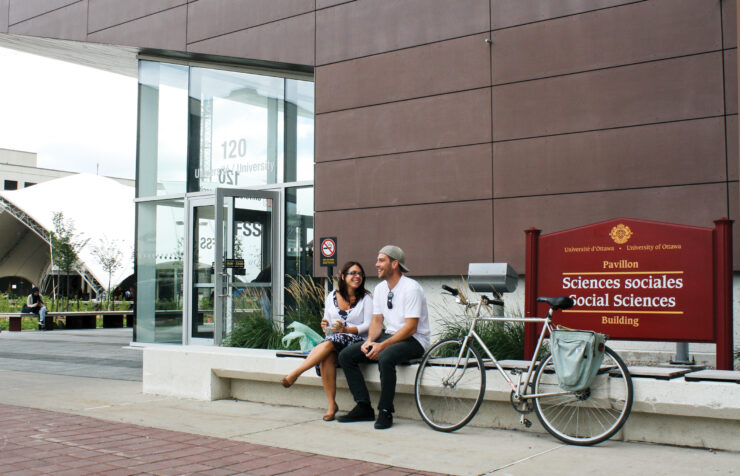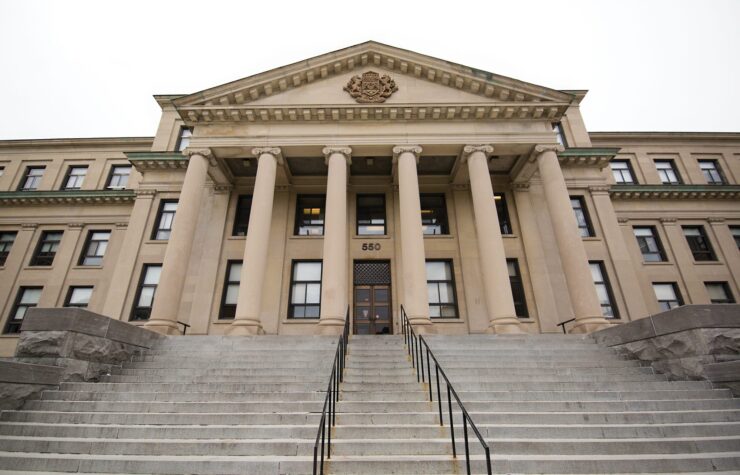The remainder of the semester moved online on Wednesday
With the remainder of the semester to be completed online as of Wednesday, University of Ottawa president Jacques Frémont is urging all students to practice social distancing to help prevent the COVID-19 virus from spreading throughout the community.
“It is extremely important that we all learn to behave differently. It’s possible to be in the same room, but people will have to learn to keep their distances,” said Frémont. “It’s crucial because otherwise, the virus will spread.”
He described social distancing to be at the heart of coping with the pandemic, especially for international students and those in residence who have to remain on campus.
“It’s a question of social responsibility, to understand that in all solidarity,” he said.
While the campus is closed, the cafeteria and residences remain open. Campus libraries were shut down earlier in the week, but Frémont said that 24/7 study rooms at Morisset Library will be open.
“That is important so that people right now are not confined in their rooms, that they can move around,” he said. “Moving around is not necessarily dangerous. Going outside is not dangerous. Go for a walk and things so that people don’t feel too lonely.”
To combat the spread of the virus, the school announced on Tuesday that everyone living in residence — with the exception of international students and those with “exceptional circumstances” — needs to move out by this Sunday at 4 p.m.
“It is in some way social distancing, but it’s for the sake and the security of the students themselves,” said Frémont. “Public health will tell you that students are better at home, people are better at home, and if they manage to stay enclosed at home.”
He stressed the importance of clearing out residence as a measure that assists those international students who are unable to fly back home.
“Some people don’t have much choice….For the sake of (international students’) safety, we need to have as few people as possible in their residences in order to be able to take care of them,” he said.
He added that he understands the strain that this measure puts on students living in residence, but he said that the school couldn’t wait any longer to implement it.
“Because of the looming crisis, but also because the exams are in two weeks and a half,” he said. “That measure … if it had been two or three days before the exams, it would have been a nightmare.”
In addition to housing international students, Frémont said that there’s a chance that vacant rooms in residence need to be occupied by infected persons who are in need of isolation spaces.
“What I’m saying is that we might need the residences in order to support the crisis relief,” he said.
Some post-secondary institutions in Ontario have adopted a similar approach. At Ryerson University, students in residence have until Monday to vacate their rooms. Algonquin College is asking students to do the same, but it is not a requirement.
“The reasoning — and I think all universities are on the same page — is please go home and work from there, and you will be more quiet for the exams,” said Frémont.
In terms of the process of writing final exams, he said that the traditional approach of writing them in a gymnasium setting is out of the question.
“It’s very much (being) discussed between the deans and the faculty members, and we will have a Senate meeting tomorrow to discuss all these issues,” he said. “The province announced — but they didn’t give any details — that they would buy some piece of software which would help professors to hold traditional exams as if people were in a room.”
He added that the final exam format will be determined by professors and deans of the various faculties.
“The persons responsible for the various programs are very aware that this change of methodology — let’s say take-home exams or papers to write — it might create a sort of bottleneck at some point,” he said. “They’re trying to coordinate exams so you don’t have five papers to give them on the same day.”
With the sixth student death in the past year occurring on residence last weekend, Frémont said that any anxieties that students may be experiencing “are very much in our minds.”
“It is crucial, especially in the light of recent events, so we are trying to find new ways of supporting students, and to build resilience. But that’s not an easy one,” he said.
He also said that there are no confirmed or suspected cases of COVID-19 in the U of O community.
“We can tell you that the very day there will be one, the whole campus will be told,” he said.
As of Wednesday, there are 14 positive cases of COVID-19 in Ottawa. The latest case was confirmed that day, a man in his 20s who had travelled to the United States and is self-isolating.
The city’s medical officer of health Dr. Vera Etches says “there could now be hundreds to even a thousand cases in the community now.”
Etches is recommending people limit non-essential trips out of the home.
Across the province, there has been one death from COVID-19 and at least 206 confirmed cases of the virus as of Tuesday, with five labelled as resolved. There have been at least 569 confirmed cases of the virus and nine deaths in Canada.
COVID-19 has infected more than 200,000 people and killed over 8,000 globally since emerging in China in December 2019.
Read More:
- COVID-19: Most students in res must move out by Sunday, U of O says
- COVID-19: U of O closes all sports and recreational facilities
- U of O closes most campus food services due to COVID-19 concerns





